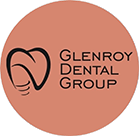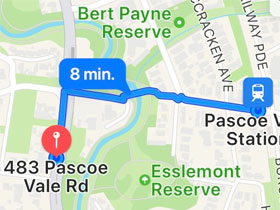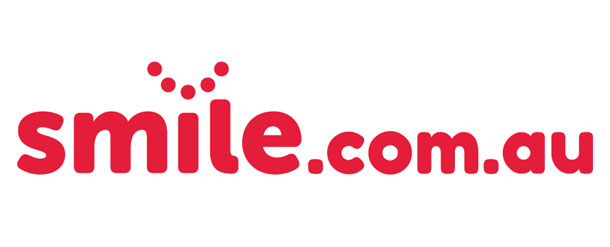 When we think of dental emergencies, we often think of knocked out teeth, bitten tongues, or lost fillings. But a very common, and very painful and dangerous dental crisis is a fractured jaw.
When we think of dental emergencies, we often think of knocked out teeth, bitten tongues, or lost fillings. But a very common, and very painful and dangerous dental crisis is a fractured jaw.
Fractured jaws are surprisingly common. On the face, only the nose is broken more frequently, and a broken jaw is the 10th most commonly fractured bone for the body as a whole. Fractures generally result from direct force or trauma to the jawbone (mandible).
Because jaw fractures can be dangerous and painful, at The Glenroy Dental Group, we want our patients to know exactly what the symptoms of a broken jaw are, what to do if you think you have one, how it will likely be treated, and what you can expect afterwards.
Causes of broken jaws
Reasons for broken jaws are varied. They are caused by many kinds of impacts to the lower face, but among the most common are:
- Accidental falls
- Head striking the dashboard during a car accident
- A fall from a bicycle or motorcycle
- Punches to the jaw
- Collisions or falls during contact sports
Symptoms of a broken jaw include:
- Facial or jaw pain that gets worse with movement, in front of the ear or on the affected side
- Swelling or bruising of the face
- Oral bleeding
- Trouble chewing
- Stiff jaw, difficulty opening the mouth wide, or a problem closing it
- Jaw movement to one side when opening
- Jaw pain or tenderness, that is worsened when biting or chewing
- Damaged or loose teeth
- Lumpy or abnormal appearance of the jaw or cheek
- Facial numbness (particularly the lower lip)
Treatment of a broken jaw
Treatment of a fractured jaw depends on how severely the bone is broken, and sometimes how many times. A minor fracture can heal on its own, requiring only pain medicine and a diet of soft or liquid foods.
For moderate to severe fractures, surgery is the most common treatment. The broken jaw may be wired to the teeth of the opposite jaw to hold the fractured jaw stable during healing. Jaw wires are usually in place for 6 to 8 weeks. Small elastic bands are attached to keep the teeth together.
If a jaw is wired, only liquids or very soft foods can be eaten. It is also vital to have blunt scissors or wire cutters at hand to cut the wiring free in the event of vomiting or choking.
Aftercare
It is important to take care of your jaw after you return home. Here are some hints.
- Pain medication. Used prescribed drugs as recommended by your doctor, or OTC drugs with attention to warnings and advice on the label.
- Apply ice. Ice decreases swelling and pain and may help prevent tissue damage. Use an ice pack, or put crushed ice in a plastic bag covered with a towel (to avoid frostbite). Apply ice for 15 to 20 minutes an hour or as recommended by your healthcare provider.
- Your healthcare provider will tell you what is safe to eat. If a jaw is wired, the diet will be foods that have been blended with liquids. Some appropriate liquids are milk, fruit juice, and vegetable juice. The resulting fluids should not have chunks or pulp, and these foods should be eaten through a syringe or straw. If a jaw fracture is not wired, the post-injury diet may be eating only soft foods.
- Clean the mouth 4 to 6 times each day. Use a small, soft toothbrush. A water flosser is also a useful tool for this. Use petroleum jelly to keep lips from becoming chapped.
- Do not play sports or take risks of falling while the jaw heals. Fractured jaws may bleed, bruise easily, or break again.
- Put no pressure on the healing jaw. Sleep on your back or use multiple soft pillows to reduce pressure at night.
You should contact your healthcare provider if you have any of the following symptoms after treatment.
- Fever
- Bad headaches
- Facial numbness
- Jaw pain that medicine cannot treat
- Loose wires
- Trouble breathing.
- Lightheadedness
- Unexplained bleeding
And remember, as you recover from a fractured jaw, The Glenroy Dental Group will be here beside you to help you ensure maximum dental health going forward!
The Glenroy Dental Group and You
At The Glenroy Dental Group, your health and happiness, and that of your loved ones are our primary goals. We use the most modern technology available and take advantage of the latest dental techniques to ensure that your dental health and appearance are at the highest level. We want you to receive the best possible dental care with no pain or anxiety!
Our offices are conveniently located in the Pascoe Vale Road shopping strip, Glenroy, with plenty of parking space, we are located within an easy walking distance of the Glenroy train station.
Same Day Dental Emergency Appointment Available!
Call (03) 9306 6511 or visit us at 2/830 Pascoe Vale Road in Glenroy.







